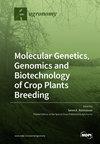How Weather and Fertilization Affected Grain Yield and Stability of Winter Wheat in a Long-Term Trial in the South Moravian Region, Czech Republic
IF 3.3
2区 农林科学
Q1 AGRONOMY
引用次数: 0
Abstract
We evaluated the impact of weather and fertilization treatments (Control, PK, NPK1, NPK2, and NPK3) on winter wheat grain yields in a long-term trial in Ivanovice, Czech Republic, established in 1956. A total of 15 seasons were evaluated. The mean, maximal, and minimal temperatures in Ivanovice have been significantly increasing since 1961, with annual increases of 0.04 °C, 0.03 °C, and 0.05 °C, respectively. Precipitation has been decreasing annually by −0.54 mm (trend is insignificant). Four significant correlations between weather and grain yield were recorded. There were positive correlations between mean (r = 0.7) and minimal (r = 0.5) temperatures in November and negative correlations between mean temperatures in May (r = −0.6) and June (r = −0.6). The combination of naturally fertile chernozem soil and a beneficial preceding crop (alfalfa) enables sustainable cultivation of wheat, even without mineral fertilizers. The application of mineral nitrogen (N) significantly increases wheat grain yield and yield stability. Without mineral N or with high doses of mineral N, yield stability decreases. According to two response models (quadratic and quadratic-plateau), a reasonable dose of fertilizer is 107 kg ha−1 N for modern wheat varieties, corresponding to a yield of 8.1 t ha−1.在捷克共和国南摩拉维亚地区的一项长期试验中,天气和施肥对冬小麦产量和稳定性的影响
1956年,在捷克共和国伊万诺维奇建立了一项长期试验,评估了天气和施肥处理(Control、PK、NPK1、NPK2和NPK3)对冬小麦产量的影响。共评估了15个季节。1961年以来,伊万诺维奇的平均气温、最高气温和最低气温呈显著上升趋势,年平均上升幅度分别为0.04℃、0.03℃和0.05℃。年降水量减少- 0.54 mm(趋势不显著)。记录了天气与粮食产量之间的四个显著相关性。11月平均气温(r = 0.7)与最低气温(r = 0.5)呈正相关,5月平均气温(r = - 0.6)与6月平均气温(r = - 0.6)呈负相关。天然肥沃的黑钙土和有益的前茬作物(紫花苜蓿)相结合,即使没有矿物肥料,也能实现小麦的可持续种植。施用矿质氮可显著提高小麦籽粒产量和产量稳定性。不施用无机氮或施用高剂量无机氮,产量稳定性下降。根据两种响应模型(二次和二次高原),现代小麦品种的合理施肥剂量为107 kg ha - 1 N,对应的产量为8.1 t ha - 1。
本文章由计算机程序翻译,如有差异,请以英文原文为准。
求助全文
约1分钟内获得全文
求助全文
来源期刊

Agronomy-Basel
Agricultural and Biological Sciences-Agronomy and Crop Science
CiteScore
6.20
自引率
13.50%
发文量
2665
审稿时长
20.32 days
期刊介绍:
Agronomy (ISSN 2073-4395) is an international and cross-disciplinary scholarly journal on agronomy and agroecology. It publishes reviews, regular research papers, communications and short notes, and there is no restriction on the length of the papers. Our aim is to encourage scientists to publish their experimental and theoretical research in as much detail as possible. Full experimental and/or methodical details must be provided for research articles.
 求助内容:
求助内容: 应助结果提醒方式:
应助结果提醒方式:


